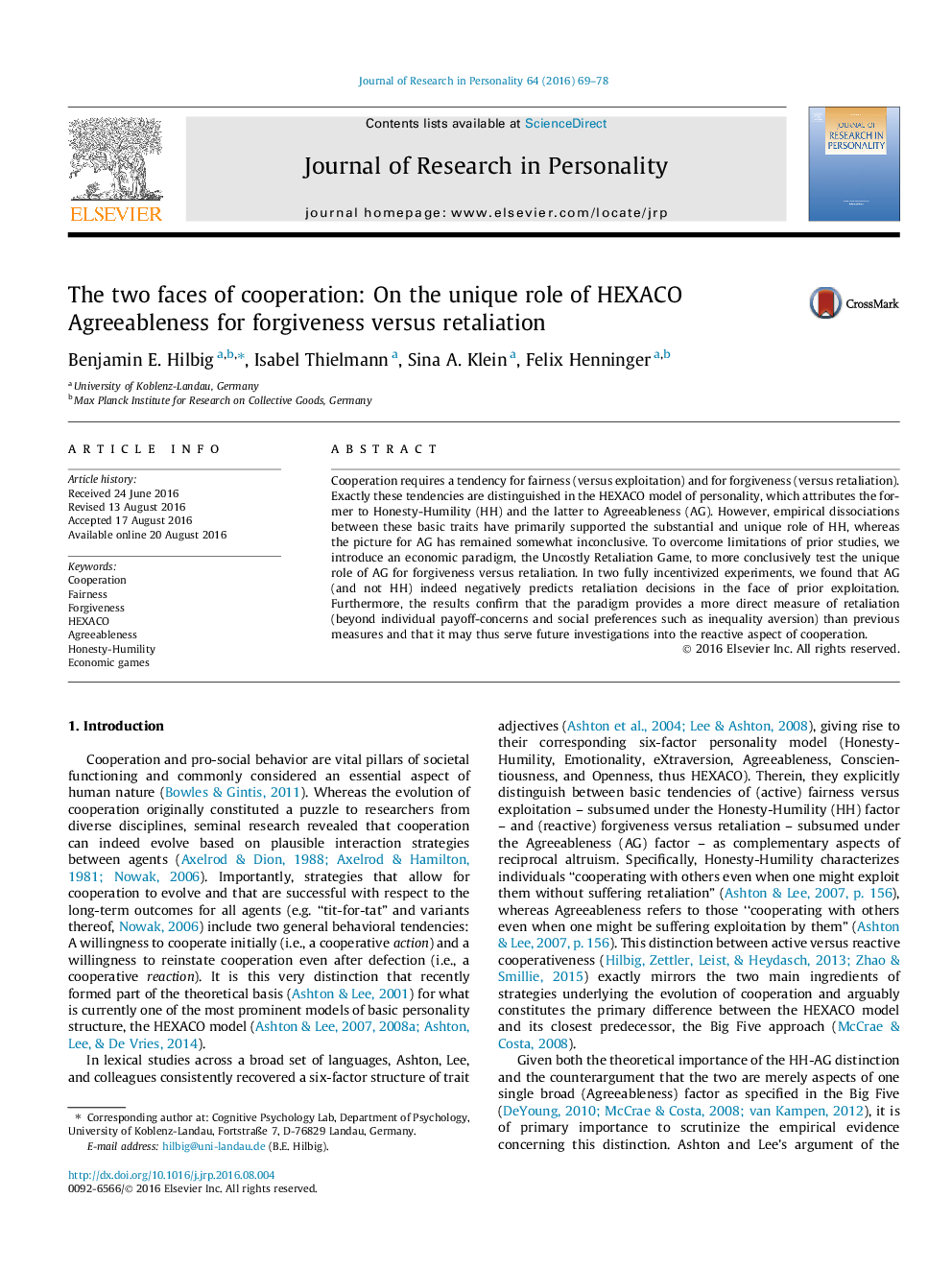| Article ID | Journal | Published Year | Pages | File Type |
|---|---|---|---|---|
| 951212 | Journal of Research in Personality | 2016 | 10 Pages |
•The evolution of cooperation requires fairness and forgiveness.•The HEXACO thus differentiates Honesty-Humility and Agreeableness (AG).•We test the AG-forgiveness-link in a novel paradigm, the uncostly retaliation game.•AG (uniquely) predicts forgiveness vs. retaliation in response to exploitation.•Results also confirm the usefulness of the new paradigm for studying forgiveness.
Cooperation requires a tendency for fairness (versus exploitation) and for forgiveness (versus retaliation). Exactly these tendencies are distinguished in the HEXACO model of personality, which attributes the former to Honesty-Humility (HH) and the latter to Agreeableness (AG). However, empirical dissociations between these basic traits have primarily supported the substantial and unique role of HH, whereas the picture for AG has remained somewhat inconclusive. To overcome limitations of prior studies, we introduce an economic paradigm, the Uncostly Retaliation Game, to more conclusively test the unique role of AG for forgiveness versus retaliation. In two fully incentivized experiments, we found that AG (and not HH) indeed negatively predicts retaliation decisions in the face of prior exploitation. Furthermore, the results confirm that the paradigm provides a more direct measure of retaliation (beyond individual payoff-concerns and social preferences such as inequality aversion) than previous measures and that it may thus serve future investigations into the reactive aspect of cooperation.
